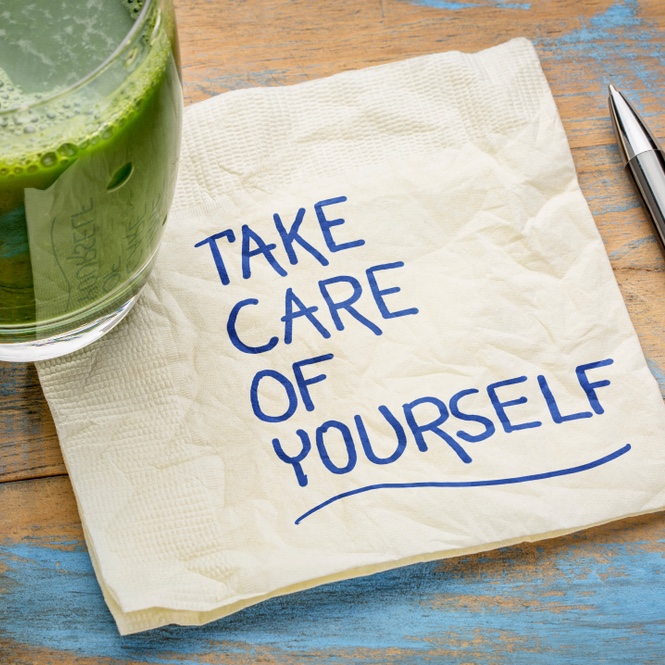Words by Kate Lucey
5 Minute Read

Loneliness is painful, and our bodies developed pain sensations to alert us to problems so we would fix things. If you ignore the pain of loneliness it can become chronic.
Being alone is not the same as being lonely. We all have different needs; some need connection every day, some are satisfied with a few deep connections every month. People need different levels of social intimacy, and can feel lonely when surrounded by others, too.
Loneliness can come and go, and is often triggered by life events that we thought would make us feel more empowered and free (like new motherhood, or when your children are grown and move out, for example) which can make us feel even more uncomfortable to admit that we feel lonely.
Being lonely affects our health in an astonishing way. Loneliness is worse for us than obesity, and just as bad for us as smoking 15 cigarettes a day. If we’re isolated, we’re at more risk of dementia due to lack of stimulation and cognitive decline, and feelings of loneliness can increase our risk of high blood pressure.
Loneliness hurts, and when something hurts, we should address it.
“Being lonely affects our health in an astonishing way”
Alone time is brilliant. It’s natural to crave some solitude if you’ve spent a while surrounded by people. Being ‘peopled-out’ is very real, but so is being ‘people-less’ when you really want to be ‘people-full.’
A lot of the advice about countering loneliness revolves around “just get out there and MEET people! Go to a party, go to a bar, go to the discotheque of life!” which… isn’t as easily done as it is written, especially if you have social anxiety which contributes quite heavily to this loneliness.
If you want to be surrounded by more company than you currently have, but at the same time are filled with dread at the thought of actually trying to meet new people, please know that you’re not alone.
I spoke to clinical psychologist Dr Kate Mason about what we can do to feel less lonely, which is coupled with advice I gathered from a whole bunch of formerly-lonely-souls when I was researching loneliness for my book. Not every single step is necessary – and if you’re socially anxious, then not every step is doable, but reading through the list is a solid start to help you set yourself up for some new connections.
1. Acknowledge your loneliness and address what you want.
Loneliness is officially identifying the gap between the amount of friends or company that you have versus the amount that you’d actually really like to have. Some people have no friends, or maybe one or two, and love it. Some people have few-to-no friends and hate it desperately. What do you have, and what would you prefer to have?
Do you actually have a lot of friends, but perhaps feel lonely because you don’t feel like you connect with any of them on a deeper or more meaningful level? Do you have a few very close friends but they live far away so you never get to spend any face-time with them? Acknowledge what you feel is missing, and write it down. It might feel a bit weird to do so, but it can really help you visualise what you want and to feel more empowered to seek it out for yourself.
2. Explore music, podcasts and books.
Although these art forms don’t actually involve interacting in a mutual exchange with someone else, they can still help to reduce our feelings of loneliness – and can be a good option if you’re feeling a bit overwhelmed with social anxiety. “Reading books or listening to podcasts and music can help you escape your feelings of loneliness temporarily as you can become engrossed in the lives of others,” says Dr Mason. “Or a self help book might help you to widen your mind to new ways of thinking. Listening to music can help you when the lyrics of a song somehow connect to your life and emotional state, reminding you that you’re not alone.” The NHS has a selection of mental wellbeing audio guides, here.

3. Look for practical solutions like joining a class, a walking or running club, a book club or anything else communal.
The whole ‘just join a club! You’ll make friends instantly!’ trope is tired, but true. Clichés tend to be clichés because they work, not just because they’re a bag of lies set up to trick you. Time DOES help heal. The grass IS always greener on the other side. Too many cooks DO spoil the broth and joining a club can actually help you make friends if you’re in the right mindset to get out and go somewhere.
Look, if people just wanted to learn a skill and not speak to anyone then there are YouTube videos and digital courses a-plenty for that. People go to clubs and classes because they too are seeking out some form of human interaction.
Some psychologists have said that to form friendships you must have repeated interactions (duh) and share a common interest. If you’re in a club or a class, then bingo, there’s your common interest. It can be nerve-wracking to ask someone if they want to go for a glass of wine or a coffee after class next week, but remember – people are there because they probably quite want to be asked this, just like you do.
4. Go to a dog-filled area.
Just looking at dogs (if you love them and don’t have a phobia…) can lift our spirits and increase our levels of oxytocin – the “love and cuddle hormone” in our brains. Small interactions with animals can scientifically help us feel better, and dogs always provide an easy way to talk to actual humans, if you feel up to it.

5. Reach out to people you care about.
Ask them how they’re doing, or remind them of a fun time you had, or send them a picture or meme and tell them why it reminded you of them. The beauty of technology is we have so many non-intimidating ways to get in touch with someone. Focusing on a positive memory, previous shared experience or simply focusing completely on the other person can be a light way to rekindle human contact without having to talk about yourself and your own feelings, if you’re not comfortable doing so yet.
6. Volunteer.
“Volunteering your time to those in need can be incredibly rewarding and help alleviate feelings of loneliness as you discover a new sense of purpose, connection and appreciation from those in your company,” says Dr Mason. “We know that giving to others can help boost feelings of confidence, being in control, happiness and optimism. Giving to others stimulates rewards centres in our brains, giving us more positive feelings, so maybe do a charity event like walking a long distance, or taking part in a fun outdoor activity with like-minded others – its likely you will make new friends from the shared experience and purpose, and feel like you’re making a positive contribution to a worthy cause.”

7. Talk about it.
“Sometimes reaching out to a friend or family member to spend time with them can be all you need. Inviting a friend or family member over for a catch up can refill our cups and give us the mood boost we need,” says Dr Mason. “But if reaching out to people you know feels terrifying because you don’t want to appear vulnerable, or maybe you’re embarrassed to admit you feel lonely, reaching out to a familiar face might not work. But reaching out doesn’t have to be with someone you know.” Dr Mason has even set up ‘Women & Wild’ specifically for these kinds of new, meaningful connections.
Talking therapy referred through the NHS won’t cost you anything, but the waiting lists can be unhelpfully long. If you’re looking for lower-cost options, try contacting the mental health charity Mind, who also have a useful resource here. You could also contact Samaritans, call: 116 123 or email: jo@samaritans.org if you need someone to talk to.
“Loneliness is the feeling we experience when there is a mismatch between the social connections we have and those that we need or want, so if you are struggling with loneliness take some time to think about this,” says Dr Mason. “Ask yourself are you trying to “fit in” to your social group or do you truly feel like you belong to that group? There’s a difference. If you’re merely fitting in, you’re not being your true self and don’t feel yourself in a social group, you are essentially putting your values (what’s important to you) to one side and adopting the group’s instead, which can contribute significantly to feeling lonely.
“When you belong, you can be unapologetically you. Having a healthy sense of self and your role in a social circle can help you to feel more happy and content with your life, by allowing you to feel like you’re making a positive contribution to society and giving back to others in some way.”
Feeling lonely is completely normal, and our brains lie to us when they make us feel that we’re probably the only ones to ever feel like this. It can help to focus only on the things you have the power to change, so that you don’t feel overwhelmed with despair. Set small, achievable targets for yourself and remember that you really aren’t the only person to feel like this.
RELATED: YES, YOUR HILARIOUS FRIEND CAN STILL HAVE DEPRESSION
RELATED: THE SECRET TO BEATING ANXIETY COULD BE IN YOUR GUT
Share this article…





